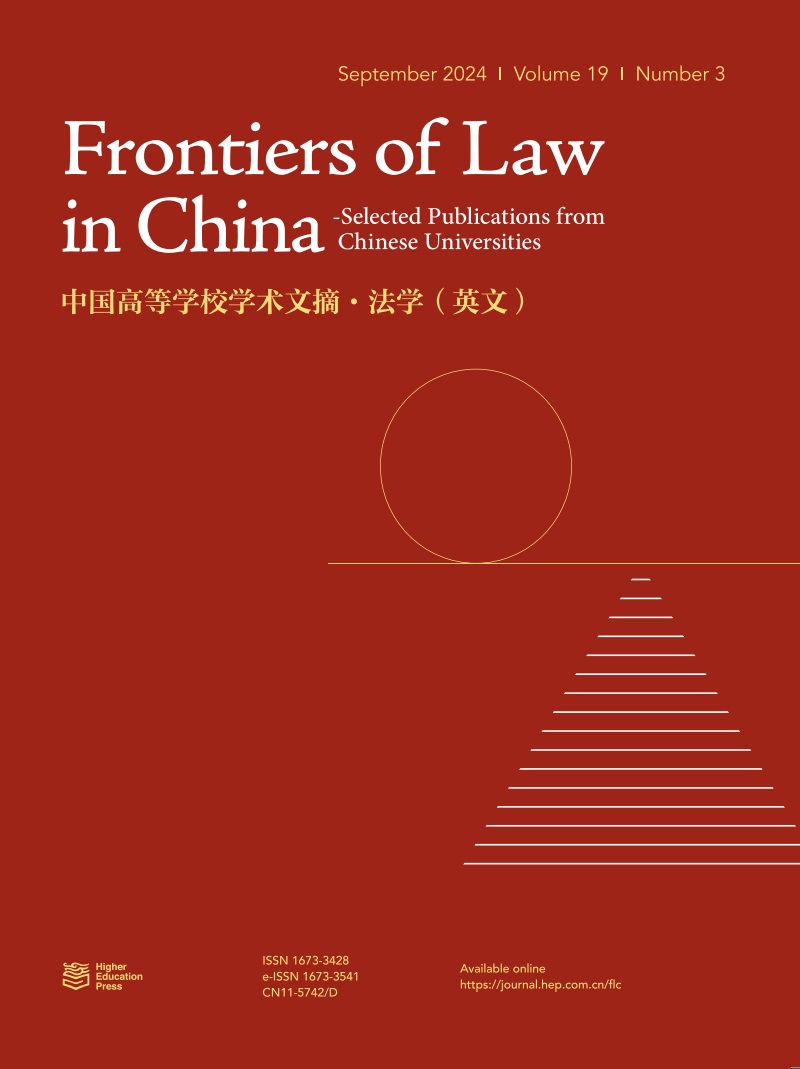The Role of a Condominium’s Association in Adapting, Complying, and Self-Reducing Anxiety in Response to COVID-19 Precautionary Measures
IF 0.1
4区 社会学
Q4 LAW
引用次数: 0
Abstract
Our article is part of a micro-inquiry into the small reality of co-ownership to formulate hypotheses on the evaluation of behaviors (non-pharmaceutical precautionary measures) in addition to pharmaceutical actions put in place by the authorities against future pandemics. Our article takes its first steps in the fact that one of the most common ways to fight the COVID-19 virus is to avoid close contact between people. Indeed, our condominium meetings have been canceled at the first COVID-19 vague (in late February 2020), and social distancing as well as the use of masks and hand sanitizer in the concierge are measures still adopted at the end of 2022. External people (parents, visitors in general, and patients from the three health offices housed in the condominium) have been reduced, and certain businesses, such as bed and breakfasts, which were operating until 2019, had been closed following the first vague of COVID-19 pandemics. The general condominium association has been centralized under the conscious direction of the doorman led by the administrator of the condominium and a support lawyer. Stray animals at the foot of the condominium and fed by a couple of residents have been reduced to the strict minimum. On a sample of 39 people questioned and from an age range between 17 and 93 years, actually residing in the condominium and excluding those members of families who do not actually reside there, we inquired how the risk of COVID-19 infection has decreased over the past year (December 2021-December 2022). The useful variables to determine the correlations between the precautionary behaviors adopted by the co-owners and a possible reduction in the risk of infection are: 1) size of the family (self-observed); 2) level of education (self-observed); 3) professional status (self-observed); 4) salary (self-observed); 5) travel history (self-observed); 6) annual charity (self-observed estimate); 7) confidence in sustainability (interviews via mobile chat); 8) doses of vaccines already taken to the time of the survey (interviews via mobile chat); and 9) depressive symptoms (interviews via mobile chat). Our survey targets to highlight how residents’ safety in the case of one of the most recent periods of COVID-19 pandemics—i. e. the starting winter season 2022‒2023—is somehow safeguarded by cooperative games because of condominiums rules’ fulfillment as well as by socio-juridical precautionary measures taken by the ruling association.公寓协会在应对COVID-19预防措施中适应、遵守和自我减轻焦虑方面的作用
我们的文章是对共同所有权的微观现实进行的一项微观调查的一部分,目的是在当局针对未来流行病采取的药物行动之外,对行为(非药物预防措施)的评估提出假设。我们的文章迈出了第一步,因为对抗COVID-19病毒最常见的方法之一是避免人与人之间的密切接触。事实上,我们的公寓会议在第一次COVID-19模糊(2020年2月底)时就被取消了,社交距离以及礼宾部使用口罩和洗手液是2022年底仍在采取的措施。外部人员(家长、一般访客、公寓内3个保健所的患者)减少了,直到2019年还在营业的住宿加早餐等部分企业在新冠肺炎大流行第一次出现后已经关闭。总共管公寓协会在由共管公寓管理员和一名辅助律师领导的看门人的有意识的指导下集中起来。公寓脚下的流浪动物,由几个居民喂养,已经被严格减少到最低限度。在接受调查的39名年龄在17至93岁之间的人的样本中,我们询问了过去一年(2021年12月至2022年12月)感染COVID-19的风险是如何降低的,这些人实际居住在公寓中,不包括那些实际居住在公寓中的家庭成员。确定共有人采取的预防行为与可能降低感染风险之间的相关性的有用变量是:1)家庭规模(自我观察);2)教育水平(自我观察);3)职业状态(自我观察);4)工资(自我观察);5)旅行史(自我观察);6)年度慈善(自我观察估算);7)对可持续发展的信心(通过移动聊天进行采访);8)调查时已接种的疫苗剂量(通过移动聊天采访);9)抑郁症状(通过手机聊天采访)。我们的调查旨在强调在最近的COVID-19大流行时期之一的情况下,居民的安全如何。E.开始的2022 - 2023冬季在某种程度上受到合作游戏的保护,因为共管公寓规则的履行以及统治协会采取的社会法律预防措施。
本文章由计算机程序翻译,如有差异,请以英文原文为准。
求助全文
约1分钟内获得全文
求助全文
来源期刊

中国法学前沿
LAW-
CiteScore
0.20
自引率
0.00%
发文量
398
期刊介绍:
Frontiers of Law in China seeks to provide a forum for a broad blend of peer-reviewed academic papers of law studies, in order to promote communication and cooperation between jurists in China and abroad. It will reflect the substantial advances that are currently being made in Chinese universities in the field of law. Its coverage includes all main branches of law, such as jurisprudence, constitutional jurisprudence, science of civil and commercial law, science of economic law, science of environmental law, science of intellectual property, science of criminal justice, science of procedural law, science of administrative law, science of international law, science of legal history, science of history of legal thoughts, etc.
 求助内容:
求助内容: 应助结果提醒方式:
应助结果提醒方式:


